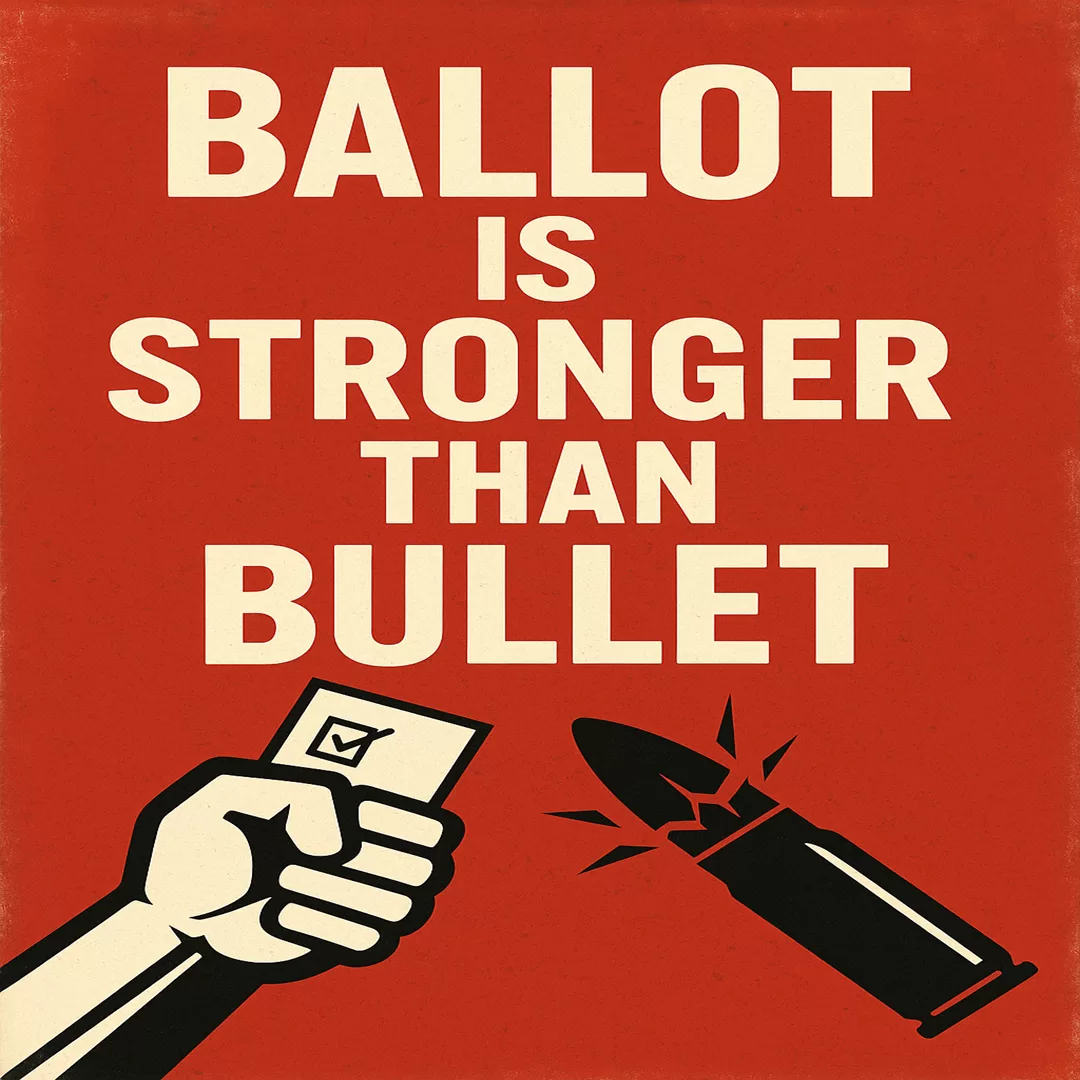By Emaan Jahangir for Invisiblites
In the great theatre of history, human beings have frequently been divided between two powers: the brutal shout of the bullet and the silent but strong voice of the ballot. Again and again, the world has taught us that though bullets may defeat bodies, only ballots can conquer hearts and minds. The bullet has a language of fear. It necessitates submission, silences opposition, and commits slow-healing wounds. The ballot, on the other hand, has a language of hope. It speaks dialogues, fosters understanding, and constructs a future based on the people’s will. As Abraham Lincoln himself put it, “The ballot is stronger than the bullet.” These are not words of rhetoric; they are a reality ingrained in the very fabric of democratic nations.
It has been repeated by writers throughout literature. In the works of Leo Tolstoy, for example, there is strong condemnation of violence and a lasting faith in the potential for moral choice and peaceful transformation. Quaid-e-Azam believed in the power of the ballot, advocating that true change comes through democratic means, not violence.
“The ballot empowers the people; the bullet silences them.”
Pakistan was created through political struggle, not armed conflict — proving that the ballot can shape nations. Democracy thrives when people choose their leaders through votes, not violence. Our future depends on strong institutions and the power of the ballot, not the barrel of a gun. A stable Pakistan demands that we uphold the democratic process and reject all forms of coercion and extremism. History, also, stands with the ballot. Revolutions based on bullets tend to result in a cycle of increasing violence and hopelessness. But revolutions based on ballots — on patient, persistent voters — sow seeds of actual change. When apartheid was ended in South Africa, it was not a gun that brought Nelson Mandela to leadership, but the ballot box. As the proverb goes, “The pen is stronger than the sword,” and by implication, the ballot is stronger than the bullet.
In every generation, the temptation to resort to violence appears to ride in the background, promising quick returns. But change is seldom conceived in blood. It is fostered by long struggle, by voices that ring out not in hostility but in harmony. The ballot requires patience, argument, and, most of all, respect for other people’s views — qualities the bullet can never foster.
In sum, the real strength of a society does not reside in its weapons, but in its words; not in its armies, but in its assemblies. The ballot box is hope, choice, and the shared dream of a better tomorrow. It is, in fact, much stronger than the bullet, for while bullets kill, ballots build. Or, as John F. Kennedy wisely remarked,
“Those who make peaceful revolution impossible will make violent revolution inevitable.”
Let us then hold dear and entrench the lofty power of the ballot, for it is by it that we build a world worthy of living in.
Emaan Jahangir is a student of BS International Relations at National Defence University, Islamabad.
Photo credits: Sora
